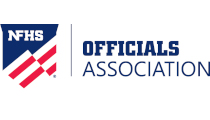Paul Pranghofer is used to the stares.
If he was a youngster, he too, would wonder about encountering someone that was born with no arms and one leg significantly shorter than the other.
“Instead of people looking at me and then shying away, I’d rather have them ask me questions,’’ said Pranghofer, 61. “It is a personal rule of mine to talk to people about it, to educate them. My disability bothered me greatly when I was younger, but as you age, you gain wisdom. I embrace it now. I want people to feel comfortable around me.’’
The Minneapolis native doesn’t get the stares when he is officiating high school adapted athletics. He might get stare-downs from coaches, he jokes, but he certainly has been a common sight for the past 32 years in Minnesota gymnasiums.
The Minnesota State High School League (MSHSL) is the only state association that governs adapted athletics. During the school year, soccer is played in the fall, floor hockey in the winter and softball in the spring. State championships are played in two divisions, one for students with cognitive impairments and the other for physical impairments.
The MSHSL has sponsored state tournaments in adapted athletics since 1993. Pranghofer began his officiating career in 1984 with the Minnesota Association for Adapted Athletics League, which later gave way to governance by the MSHSL.
“Paul is one of our most well-known and most recognizable officials,’’ Robbinsdale/Hopkins/Mound Westonka coach Marcus Onsum said. “Even if people don’t agree with some of his calls, or his interpretations of our adapted rules, everyone respects him for what he has done for adapted athletics in Minnesota and for what he represents.’’
In the 21 years that the MSHSL has sponsored adapted athletics, Pranghofer has worked in every floor hockey and softball state tournaments. He has worked in all but three soccer state tournaments. He specifically works in the PI division.
Just as the sports have been adapted, so too, has Pranghofer’s officiating.
In the absence of arms to signal stoppages in play, he vocalizes and uses a whistle that is nestled on his left side. Pranghofer has two fingers that are just below his left shoulder socket. There, the whistle fits snugly during play. In everyday life, it is where he holds a pen or pencil.
He didn’t begin using a wheelchair for his officiating and everyday life until about30 years ago. He did so, in part, to save his legs from the wear and tear, and to ensure mobility in his senior years. In his younger days, he was able to walk daily a distance of about 1.5 miles before feeling fatigued. Now that distance is about 200 yards.
In floor hockey, his favorite sport to officiate, he used to use his left foot to drop the puck for a faceoff. That became a painful problem, though, when players would whack his unguarded foot with their hockey sticks during the faceoff. He now wears a shoe on that foot, instead opting to drop the puck with the right foot, on his shorter leg.
“My first five years of officiating was a learning process,’’ Pranghofer said. “When I first started, I wanted to be perfect, to call the perfect game, game in and game out. You can’t think that way. You’ve got to manage the game. Different things happen in a game and you have to adapt. Sometimes that means letting some of the ticky-tack things go.’’
Pranghofer said his officiating style is more mellow and less excitable than in his early days. He said when a coach or player challenged a call in his early years of officiating, he had a tendency to become offensive in return.
“I got in their faces a bit,’’ he said. “I’ve learned over the years that that isn’t the way conflicts are solved. I stay calm now and diffuse the situation. It’s best to be calm about things when you are an official. ‘’
In his 32-year officiating career, he said he has had to eject just three participants --- one coach and two competitors.
Pranghofer developed his love of officiating from Ed Prohofsky, his physical education teacher at Marshall University High School in Minneapolis. Prohofsky is one of the pioneers in the development and acceptance of adapted athletics in Minnesota.
In their physical education classes, Prohofsky encouraged students to go beyond just watching sporting events. Learn the rules, he preached. Watch the games from on official’s perspective, he encouraged.
“He was my mentor; my love of sports is because of Ed,’’ said Pranghofer, a 1972 graduate.
Growing up in south Minneapolis, Pranghofer said mainstreaming of special-needs students wasn’t happening in the school districts. There were no organized sports available, either, for kids with disabilities.
They had to make up their own games. He said about a dozen neighborhood kids would gather for boot hockey games in the alleys in the winter months. In the summer, it was kickball and their own version of baseball. Pranghofer was the fulltime pitcher, using his left foot to lob a rubber ball to the batter. In the fall, it was tackle football.
“We were tough guys,’’ he says with a laugh. “We didn’t play touch football.’’
After high school graduation, he was awarded a scholarship from Control Data to become a software engineer. While he built his own computer business, his love of sports continued, as did his grassroots work with developing sports for disabled adults.
His advocacy for being active in life and for adapted athletics continues today.
Onsum grew up in the community where Pranghofer lives now and was amazed.
He saw him riding through the neighborhood on a modified bicycle, operating a snowblower and lawn mower and hanging Christmas lights. Onsum said his parents told him, “If he can do those sorts of things, there’s no reason you can’t help out around here and do them, too.’’
Said Onsum: “Paul is one of the most amazing and inspirational people I have ever met.’’
“Paul has been an exceptional role model in the entire MSHSL community,’’ said MSHSL Associate Director Rich Matter, who oversees the adapted athletics program. “His dedication and love for our high school sports programs is unwavering. I know Paul would say he has benefitted tremendously from his involvement with our programs, but I would say it is our programs that have benefitted from Paul’s involvement.’’
Pranghofer says he will return for at least another school year of officiating.
“I don’t believe in sitting on the sideline in life,’’ he said. “I want to be involved. I want to continue to be a positive influence to these young people.’’
Tim Leighton
Tim Leighton is communications coordinator of the Minnesota State High School League and a member of the NFHS Officials Publications Committee. He formerly was a sportswriter for 31 years with the St. Paul Pioneer Press. He is a 25-year official with the MSHSL.
Most Recent Articles
- nfhs news NFHS Learning Center Delivers 25 Millionth Course
- Track & Field/Cross Country article Effective Communication with Athletes and Coaches
- nfhs news Player Equipment Changes Highlight 2025 High School Football Rules Revisions
- Player Equipment Changes Highlight 2025 High School Football Rules Revisions
- nfhs news Judgment Call on Second Contact Eliminated in High School Volleyball






